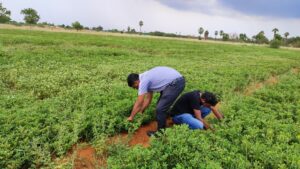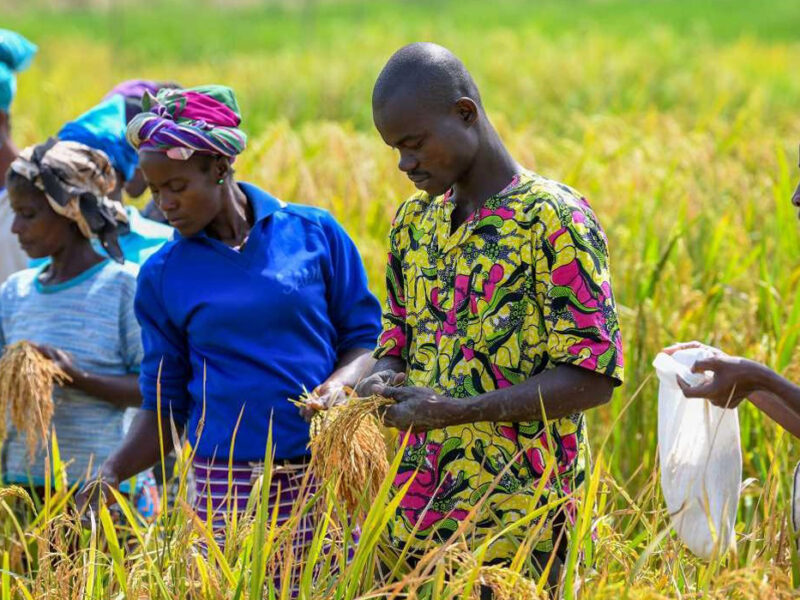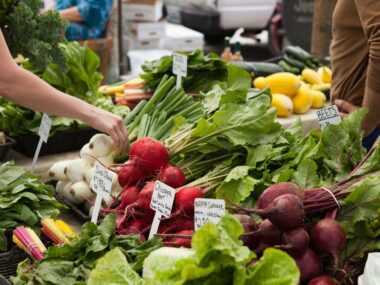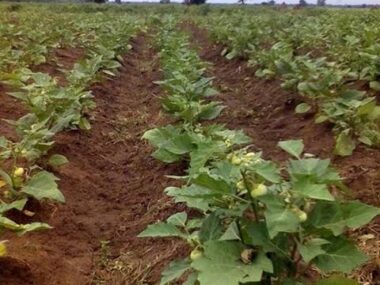Specialty crop farming is an essential component of agriculture, offering diverse products like fruits, vegetables, nuts, and herbs. However, navigating the complexities of specialty crop cultivation requires continuous learning and access to relevant educational resources. From mastering sustainable practices to staying abreast of market trends, specialty crop farmers benefit immensely from educational support tailored to their unique needs. In this comprehensive guide, we explore the wealth of educational resources available to specialty crop farmers, empowering them to thrive in a dynamic agricultural landscape.

Online Courses and Webinars:
Numerous platforms offer online courses and webinars specifically designed for specialty crop farmers. These resources cover a wide range of topics, including crop management, pest control, irrigation techniques, and post-harvest handling. Organizations like the USDA, universities, and agricultural extension services often provide free or low-cost access to these educational materials, allowing farmers to learn at their own pace from anywhere with an internet connection.
Agricultural Extension Services:
Local agricultural extension offices serve as invaluable resources for specialty crop farmers. Staffed by experts in various fields, these offices offer personalized assistance, workshops, and educational materials tailored to the specific challenges faced by farmers in their region. Whether it’s soil health assessments, pest management strategies, or marketing tips, extension services play a vital role in disseminating practical knowledge to farmers.
Trade Associations and Industry Groups:
Joining trade associations and industry groups provides specialty crop farmers with access to a wealth of educational resources and networking opportunities. These organizations often host conferences, seminars, and workshops featuring expert speakers who share insights on the latest research, best practices, and technological advancements relevant to specialty crop production. Additionally, membership in these groups fosters collaboration and knowledge-sharing among farmers, further enriching the educational experience.
Government Programs and Initiatives:
Government agencies at the federal, state, and local levels offer various programs and initiatives aimed at supporting specialty crop farmers. These initiatives may include grants for research and innovation, subsidies for adopting sustainable practices, and educational workshops on regulatory compliance. By taking advantage of these resources, farmers can enhance their skills, improve efficiency, and remain competitive in the marketplace.
Online Forums and Communities:
Online forums and communities provide platforms for specialty crop farmers to engage in discussions, ask questions, and share experiences with peers from around the world. Platforms like Reddit, Facebook groups, and specialized agricultural forums facilitate knowledge exchange on topics ranging from crop-specific cultivation techniques to marketing strategies. Participating in these communities allows farmers to learn from each other’s successes and challenges, fostering a sense of camaraderie within the agricultural community.
Educational Publications and Research Journals:
Keeping abreast of the latest research and developments in specialty crop agriculture is essential for farmers seeking to improve their practices. Educational publications, research journals, and agricultural magazines offer a wealth of information on emerging trends, innovative technologies, and scientific discoveries relevant to specialty crop production. Subscribing to these publications or accessing them through agricultural libraries enables farmers to stay informed and adapt their strategies accordingly.
On-Farm Demonstrations and Field Days:
On-farm demonstrations and field days provide hands-on learning opportunities for specialty crop farmers to observe best practices in action and interact with experts in the field. Agricultural universities, research institutions, and extension services often organize these events, showcasing cutting-edge techniques, equipment demonstrations, and research trials tailored to specialty crops. By attending these events, farmers gain practical insights and inspiration to implement new strategies on their own farms.
Conclusion:
Specialty crop farming presents both opportunities and challenges, and access to quality educational resources is crucial for farmers to succeed in this dynamic industry. From online courses and agricultural extension services to trade associations and government initiatives, a wealth of educational opportunities exists to empower specialty crop farmers with the knowledge and skills needed to thrive. By embracing lifelong learning and leveraging these resources effectively, farmers can cultivate sustainable practices, enhance productivity, and contribute to the vitality of the specialty crop sector.










